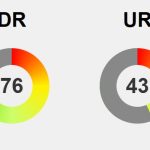Friedrich Nietzsche’s provocative ideas continue to shake the foundations of modern thought—challenging us to reevaluate morality, authority, and personal freedom. His fierce rejection of inherited values and his call for radical self-creation reveal a philosophy rooted in chaos, resilience, and authentic individualism. But can embracing disorder truly lead to growth and liberation? Nietzsche’s concepts of the ‘will to power,’ ‘eternal recurrence,’ and the ‘death of God’ serve as powerful tools to confront our internal doubts and external pressures. His work urges us to forge our own moral and existential paths amid life’s unpredictability, transforming chaos from a threat into an opportunity for self-overcoming. Is true freedom found in conformity or in daring to live deliberately and authentically? As his ideas continue to inspire artists, thinkers, and rebels, Nietzsche’s legacy challenges us to question the status quo—and to find meaning in the ongoing process of becoming.
Unveiling Nietzsche’s Provocative Life and Revolutionary Ideas
Friedrich Nietzsche’s life was as provocative as his ideas. Born in 1844 in the small German town of Röcken, he grew up in a deeply religious and conservative environment. His father, a Lutheran pastor, died unexpectedly when Nietzsche was only five, leaving him to be raised mainly by his mother and sister. Their strict religious beliefs stood in stark contrast to Nietzsche’s natural skepticism, planting early seeds of tension between faith and doubt that would shape his entire philosophical outlook. These formative years of loss and religious discipline fueled his critical stance toward traditional morality and institutional authority, themes that would become central in his work.
Initially, Nietzsche was expected to follow a religious path, perhaps even to join the clergy like his father. Instead, his innate curiosity pulled him toward classical studies, and he enrolled at university to study philology, a discipline that sharpened his analytical skills. His exposure to ancient Greek, Latin, and literary sources broadened his understanding of language, history, and culture, igniting a questioning spirit that challenged the assumptions underlying Western civilization. Despite health issues that often interrupted his academic pursuits, Nietzsche’s determination only grew stronger. His struggles with illness became a catalyst for rejecting comfort and conformity, pushing him to forge a new way of thinking rooted in individual inquiry.
Nietzsche’s philosophy is best understood through its bold, transformative ideas that challenge the status quo. Among these, the concept of the “will to power” stands out as a driving force behind human behavior. He believed that humans are fundamentally motivated by an innate desire to assert their strength, influence, and mastery over their environment. This idea shifts the focus from morality based on divine authority or societal rules to a more primal drive for self-assertion and growth. For Nietzsche, morality rooted in external standards is secondary to the individual’s instinct to overcome limitations and redefine their existence through active self-creation.
Another cornerstone of Nietzsche’s thought is the idea of “eternal recurrence”—the notion that life repeats itself infinitely in a cycle. This provocative concept urges us to live as if every moment will recur eternally, encouraging authenticity and full responsibility for our choices. It’s a call to embrace life’s chaos and unpredictability, finding meaning and purpose in each act because it could be relived forever. This idea directly counters nihilism—the view that life lacks inherent meaning—by emphasizing the importance of living intentionally and creating one’s own values amid the chaos.
Central to Nietzsche’s revolutionary outlook is the declaration of “the death of God.” Far from mere provocation, this phrase signaled a fundamental shift in Western thought. With the decline of religious authority, traditional moral frameworks lost their foundation, leaving a void that demanded new sources of meaning. Nietzsche viewed this as an opportunity—an invitation for individuals to become creators of their own values, guided by inner drives rather than external dogmas. His critique of religion and morality aimed to free people from herd mentality and foster a culture of genuine self-empowerment, where morality is self-defined rather than inherited.
At its core, Nietzsche’s philosophy champions radical individualism. He believed that true freedom and authenticity come from actively shaping one’s life and moral outlook, rather than passively accepting inherited beliefs. This perspective challenges us to confront internal doubts and external pressures, encouraging a process of continuous self-overcoming. Nietzsche saw chaos and disorder not as threats but as fertile ground for growth, where the authentic self can emerge through effort and resilience. Living this way means embracing the messy, unpredictable aspects of life as essential to personal development.
Nietzsche’s ideas extend beyond philosophy into cultural and psychological realms. His emphasis on self-creation and overcoming obstacles has inspired countless artists, writers, and thinkers to challenge conventions and explore new frontiers of human potential. His critique of traditional morality continues to influence modern debates about ethics, freedom, and authenticity. In today’s world, where external systems often seek to define and confine us, Nietzsche’s call for internal strength and self-determination remains a powerful reminder that true liberation begins within.
Understanding Nietzsche’s philosophy is to recognize a call to active engagement with life’s chaos. His challenge to conformism and his celebration of individual strength invite us to question not only societal norms but also our own internal beliefs. His ideas encourage us to live deliberately, forging our paths amid uncertainty, and to find meaning in the ongoing process of becoming. Nietzsche’s legacy is a testament to the transformative power of questioning, self-overcoming, and embracing chaos as a vital part of human growth. His life and work continue to inspire those daring enough to challenge the status quo and shape their own destiny.
Reflecting on Nietzsche’s Enduring Legacy and Call to Personal Transformation
Friedrich Nietzsche’s rebellious ideas continue to resonate deeply today, challenging us to rethink the very roots of morality, authority, and personal freedom. His core concepts—questioning inherited values, emphasizing self-creation amid chaos, and viewing disorder as a catalyst for growth—remain strikingly relevant in a world that often prizes conformity and unquestioned tradition. Nietzsche’s call to scrutinize the status quo pushes us to look beyond surface beliefs and consider what truly drives human fulfillment and authenticity. His critique urges us to see freedom not just as the absence of constraints, but as an active process of shaping our lives amid chaos and uncertainty.
At the heart of Nietzsche’s thought is a profound emphasis on individualism. He invites us to forge our own moral paths instead of blindly following societal norms or religious doctrines. This perspective fuels a cultural shift toward self-empowerment and resilience, encouraging us to become architects of our identities and destinies. The act of self-creation is demanding—it requires confronting internal doubts, external pressures, and the unpredictable chaos of life. Yet through this ongoing process of self-overcoming, we find a deeper sense of purpose and authenticity that cannot be handed down but must be earned through effort and resolve.
Nietzsche’s critique of traditional morality and authority is more than provocative; it’s a call for cultural transformation. By questioning religious and societal frameworks that often serve to suppress vitality and strength, he inspires a reevaluation of what it means to live well. Rejecting moral complacency and embracing chaos as a space for growth opens the door to a society that values personal responsibility, inner strength, and creative freedom over inherited dogmas. This shift from conformity to authentic self-expression offers a path to resilience and innovation, fostering communities built on genuine individual power.
His influence extends far beyond philosophy into the realms of psychology, art, and culture. Nietzsche’s ideas have inspired countless artists and thinkers to challenge conventions and explore new dimensions of human potential. His emphasis on embracing chaos and the importance of self-overcoming has fueled creative and personal revolutions, encouraging a mindset that sees obstacles as opportunities rather than setbacks. In contemporary society, his call for authenticity and inner strength provides a vital lens for understanding personal struggles and societal shifts alike. Living in accordance with his philosophy means actively shaping our lives, not passively accepting external definitions of worth.
Looking ahead, Nietzsche’s ideas offer a vital framework for navigating an increasingly complex and uncertain world. His emphasis on questioning authority and creating self-defined values equips us to face cultural polarization, social stagnation, and identity crises. His celebration of chaos as a space for growth reminds us that upheaval can be a fertile ground for renewal. Embracing this perspective allows us to foster resilience and adaptability, transforming chaos from a threat into an opportunity for transformation. Nietzsche’s philosophy encourages us to live deliberately, with purpose, even amid the turbulence of modern life.
Genuine freedom, according to Nietzsche, is an internal act—an ongoing act of choice and creation. It involves resisting external pressures and forging a path aligned with our deepest drives and values. His ideas challenge us to see chaos not as a destructive force, but as an essential space where authentic selves can emerge. This requires courage and a willingness to face uncertainty head-on. By doing so, we participate in a process of continuous becoming, shaping ourselves and our worlds through effort and intentionality.
Reflecting on Nietzsche’s impact, it becomes clear that his revolutionary spirit remains profoundly relevant. His challenge to conventional morality and celebration of individual strength continue to inspire conversations about what it means to live authentically in a fractured, unpredictable world. His ideas push us to reject complacency and embrace the messy, unpredictable nature of life as a vital source of vitality and growth. In embracing chaos and self-overcoming, we join a tradition of thinkers and creators committed to forging new paths in the pursuit of meaning and strength.
Nietzsche invites us to see chaos not as a threat but as a fertile ground for our evolution. His philosophy reminds us that true freedom is an active pursuit—one that requires ongoing effort, questioning, and resilience. By daring to challenge authority and craft our values, we engage in a process of continuous becoming, leading to deeper authenticity and inner strength. His rebellious ideas challenge us to live not in spite of chaos but because of it, transforming life’s uncertainties into powerful catalysts for growth, self-mastery, and renewal.






